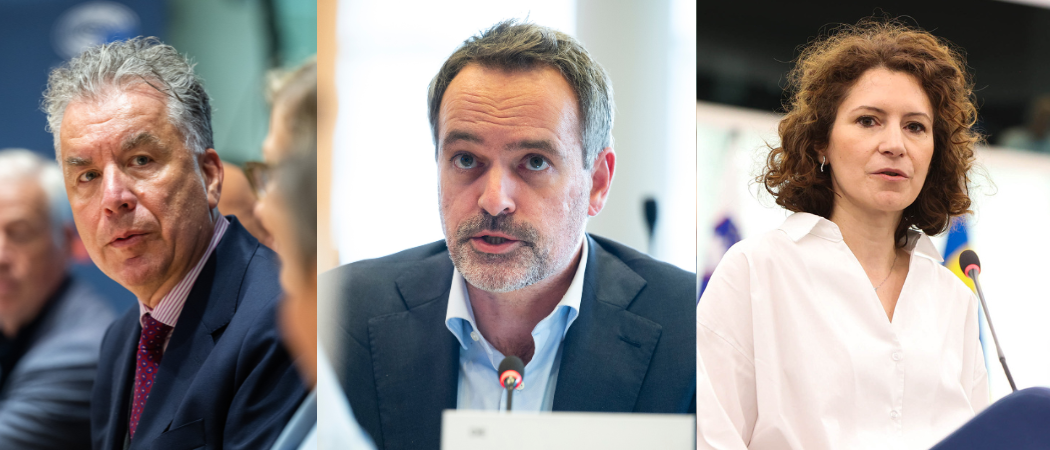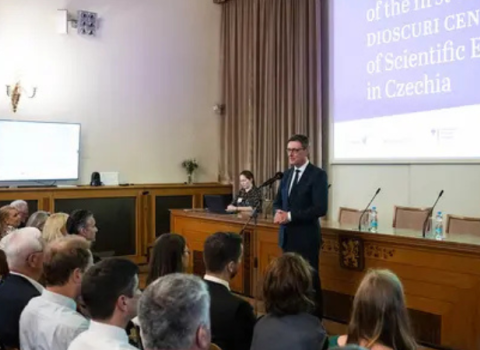MEPs warn that handing Widening to finance ministries would turn it into a budget bargaining chip

From left to right: Christian Ehler (EPP), René Repasi (S&D) and Eszter Lakos (EPP). Photo credits: European Union
The European Parliament’s negotiators for the tenth Framework Programme, FP10, are sounding the alarm after the EU Council “bracketed” the Widening and excellence articles of the next EU research programme.
This annotation in the Council’s version of Multiannual Financial Framework (MFF) proposal indicates that diplomats dealing primarily with budget issues will play an important part in their negotiation.
“My first intention is to get Widening out of the brackets,” Christian Ehler, lead FP10 rapporteur and co-rapporteur for the new European Competitiveness Fund, told Science|Business.
The Widening programme, which is designed to help countries that joined the EU after 2004 to improve their performance when bidding for EU research funds, must remain part of the Horizon negotiations rather than being shifted to the broader MFF talks, he said.
“We will clearly say to the Council: it's not you deciding with the finance ministers how Widening is going to look,” said Ehler, who sits with the European People’s Party (EPP) group. “We don't expect any profound and really helpful proposal from that negotiation.”
The risk, he added, was that finance ministers will treat the Widening programme as just another budgetary bargaining chip. “We have to reintegrate it in the Horizon negotiations and then I think we'll find common ground between the three institutions.”
Related articles:
- Emerging Council plans could shake up FP10
- Left and right MEPs challenge allocation of research and innovation files
René Repasi of the Socialists and Democrats (S&D) group shares these concerns. He is rapporteur for the FP10 specific programme, a separate piece of legislation covering implementation measures.
“We fought for an autonomous Horizon programme with a clear firewall. If essential chapters can now be carved out and negotiated elsewhere, that firewall is already being weakened,” he told Science|Business. “FP10 must not become a savings account for other priorities.”
Ehler’s position is backed by Eszter Lakos, founder of an informal Widening task force within the Parliament and EPP shadow rapporteur for the FP10 specific programme. “Widening, both in terms of its objectives and its specific instruments, needs to be discussed where it belongs: within the Research Working Party, while the budgetary dimension must be handled by the MFF Ad Hoc Working Group,” she told Science|Business.
The research working party is a preparatory body composed of specialised science diplomats representing research ministries from the EU’s 27 member states, where legislative negotiations on the Framework Programme for research and innovation are usually settled.
“For FP10, Widening should be treated horizontally, anchored throughout the entire Framework Programme,” Lakos said. “This reflects the clear majority view of stakeholders, who want Widening to remain a strategic component of European research and innovation policy.”
Lina Gálvez, S&D shadow rapporteur for FP10, was also approached for comment.





 A unique international forum for public research organisations and companies to connect their external engagement with strategic interests around their R&D system.
A unique international forum for public research organisations and companies to connect their external engagement with strategic interests around their R&D system.